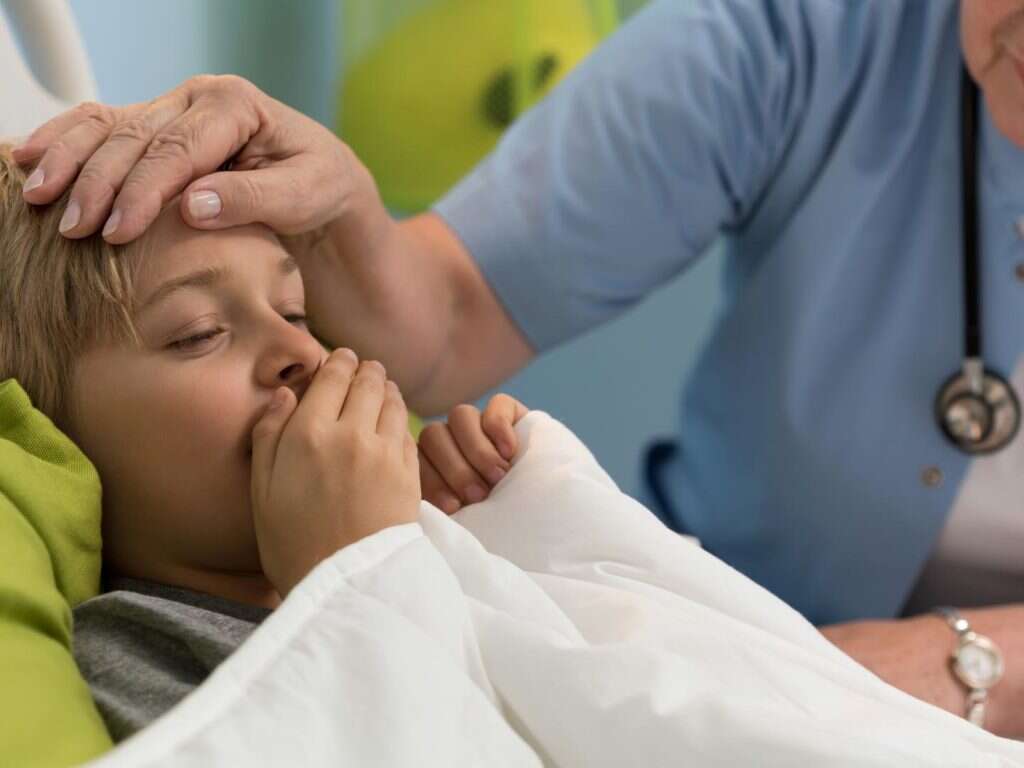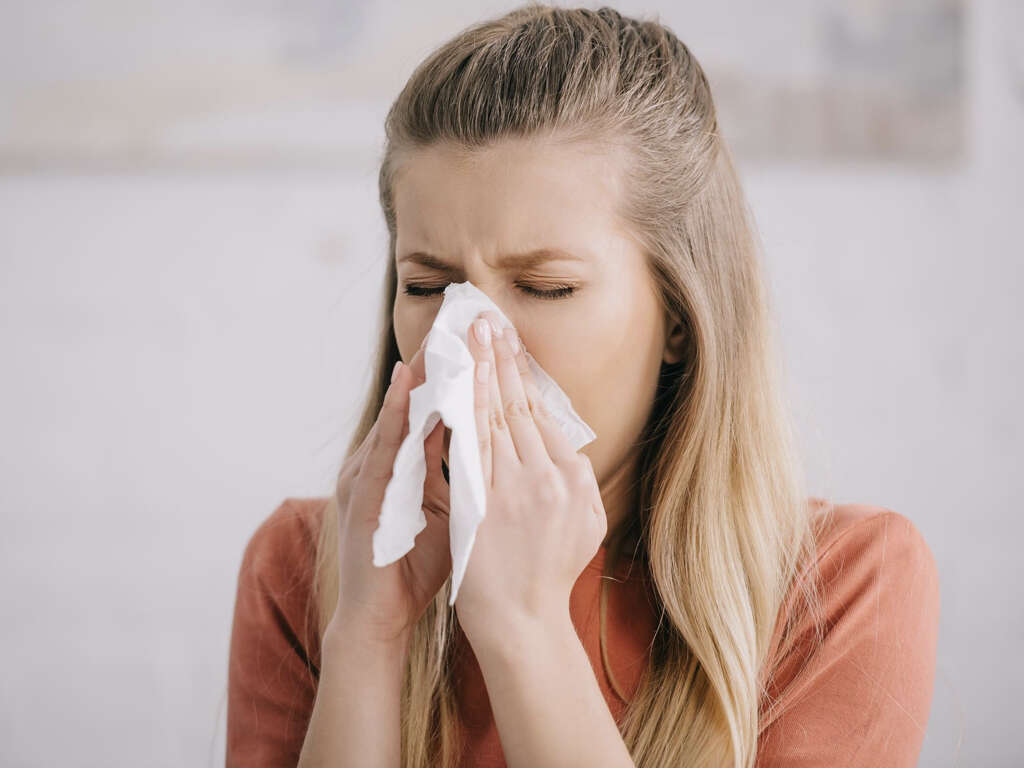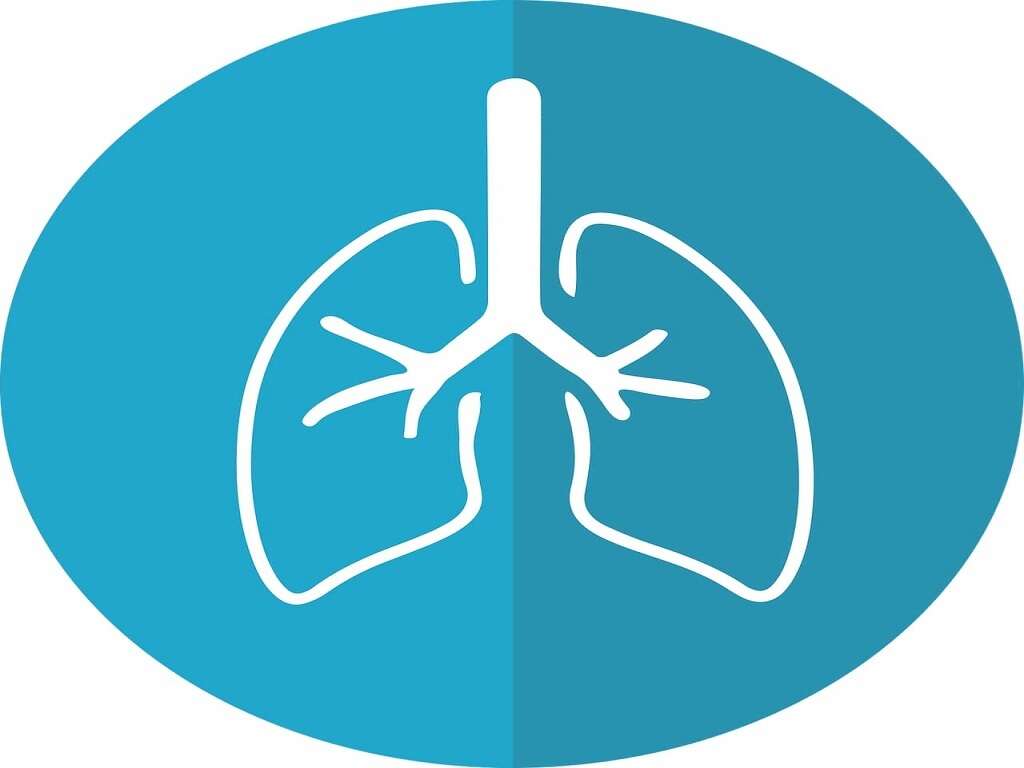10 Symptoms of Pneumonia
Pneumonia is a very common disease that can strike any kind of individual no matter the age, sex or ethnicity. The disease can be acquired in the community (community-acquired pneumonia) and sometimes it can be caught at the hospital (nosocomial pneumonia).
Pneumonia can be bacterial, viral or even fungal in origin. Some of the usual pathogens linked with this disease are Streptococcus Pneumoniae, Haemophilus Influenzae, Moraxella Catarrhalis, Rhinovirus and Influenza to name a few.
Pneumonia is very common as far as illness goes. There are more than 3 million cases of it diagnosed every year in the US, and that number is only expected to increase. Children and adults are both just as likely to develop the illness. Let’s have a look at some of the common pneumonia symptoms.

Symptom #1: Coughing
The first and most obvious symptom of pneumonia is coughing. It can start out as a little cough that could be easily confused with a common cold or another illness, but it becomes quite serious after a while.
If pneumonia is not detected and dealt with promptly, coughing can become quite painful. The cough can start as a non-productive (also called “dry” cough) or it can be seen with sputum (secretion) that can be transparent at first but eventually becomes yellow or green. Wheezing and other respiratory symptoms are common.
The coughing can become so persistent that a person might not be able to sleep at night and may even miss work or school.

Symptom #2: Fever
Fever is a common symptom associated with pneumonia. It is described as an elevation in your body temperature which occurs as a result of an immune response mediated to fight infectious diseases.
Even though this symptom is quite common in patients with pneumonia, it is important to know that it has a low specificity towards medical diagnosis, meaning that, lots of other pathologies can cause fever.
If you have a fever, associated with other respiratory symptoms and you think you might have pneumonia, you should seek medical attention before using over-the-counter (OTC) medications to treat yourself.

Symptom #3: Tachypnea
Tachypnea is the medical word for increased respiratory rate. The normal respiratory rate is supposed to be below 20 respirations per minute.
If you find yourself having trouble breathing at a normal pace. While being at rest, you should seek medical attention to look for the cause of this symptom.

Symptom #4: Thoracic Pain
In some cases, pneumonia can cause chest pain. This is most often caused by the effort made during coughing.
Coughing is a normal defense mechanism, used by your body to try to get rid-off pathogens or other substances in the airway. But in patients with pneumonia, coughing can become quite annoying and painful.
It is important to know the difference between chest pain associated with coughing effort and other kinds of chest pain. If you feel a very intense pain like a knife going into your chest every time you inhale, and this pain cuts your normal inspiration cycle, you should get medical attention.

Symptom #5: Shortness of breath
This is one of the most common symptoms seen in a patient with pneumonia. The muscles involved in respiration are voluntary muscles, for this reason they can become tired when overworked. When this happens you start using other muscles to help them out (accessory muscles), but you shouldn’t wait this long to seek medical attention.
If you find it difficult to breath while being at rest, you should get medical attention to properly diagnose the cause.

Symptom #6: Increased heart rate
Pneumonia just like most of the infectious diseases can cause your heart rate to increase. Severe cases of pneumonia can cause oxygen delivery to the body to become diminished, making the heart work faster to deliver the precious oxygen to the tissues.
This is often seen during fever as a normal physiological finding or can be due to the chest pain associated with the efforts made during coughing.

Symptom #7: Nausea and vomiting
Nausea and vomiting are quite common symptoms associated with pneumonia, especially in children and elderly patients.
Staying hydrated is of paramount importance in patients with multiple vomiting episodes, as it also helps to make the sputum more fluid and easier to expel.

Symptom #8: Hemoptysis
Seeing blood after coughing is not something anyone likes to see, unfortunately, this can happen for some patients with pneumonia.
That being said, this is not a common symptom of this disease, it is usually associated with fungal pneumonia (like Aspergillosis).
If you find blood after coughing, you should seek medical attention to check the cause of this finding.

Symptom #9: Fatigue
Fatigue is a very common symptom associated with pneumonia. Most patients lack the energy to get out of bed, and this can be one of the main reasons why pneumonia causes so many people to miss work each year.
Many other diseases can cause a patient to be tired, so you shouldn’t take this symptom as an isolated marker for pneumonia.

Symptom #10: Myalgia
Myalgia is the medical term used to describe muscle pain. This is a common symptom seen in infectious diseases, mostly in fever-causing illnesses. It can affect lots of muscles in the body at the same time.
The pain is usually mild to moderate in intensity but sometimes it can be strong enough to cause patients to miss out on their daily routine.












